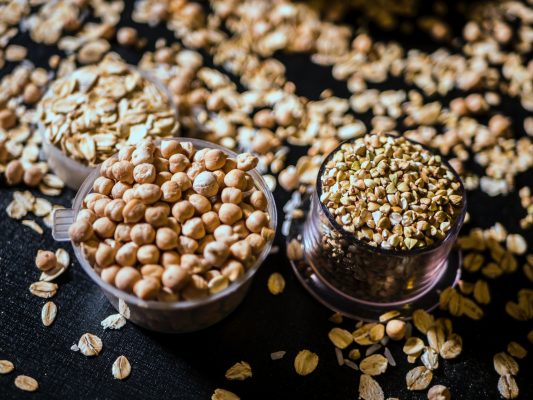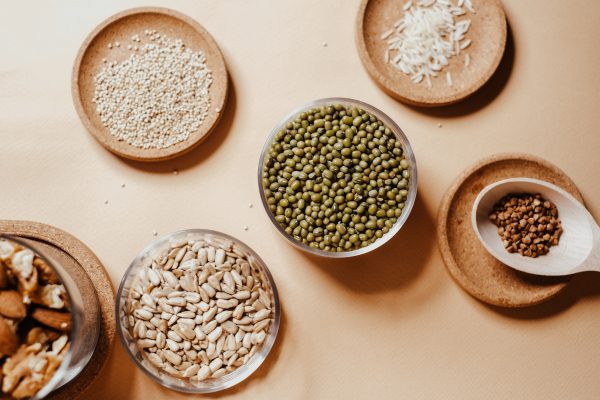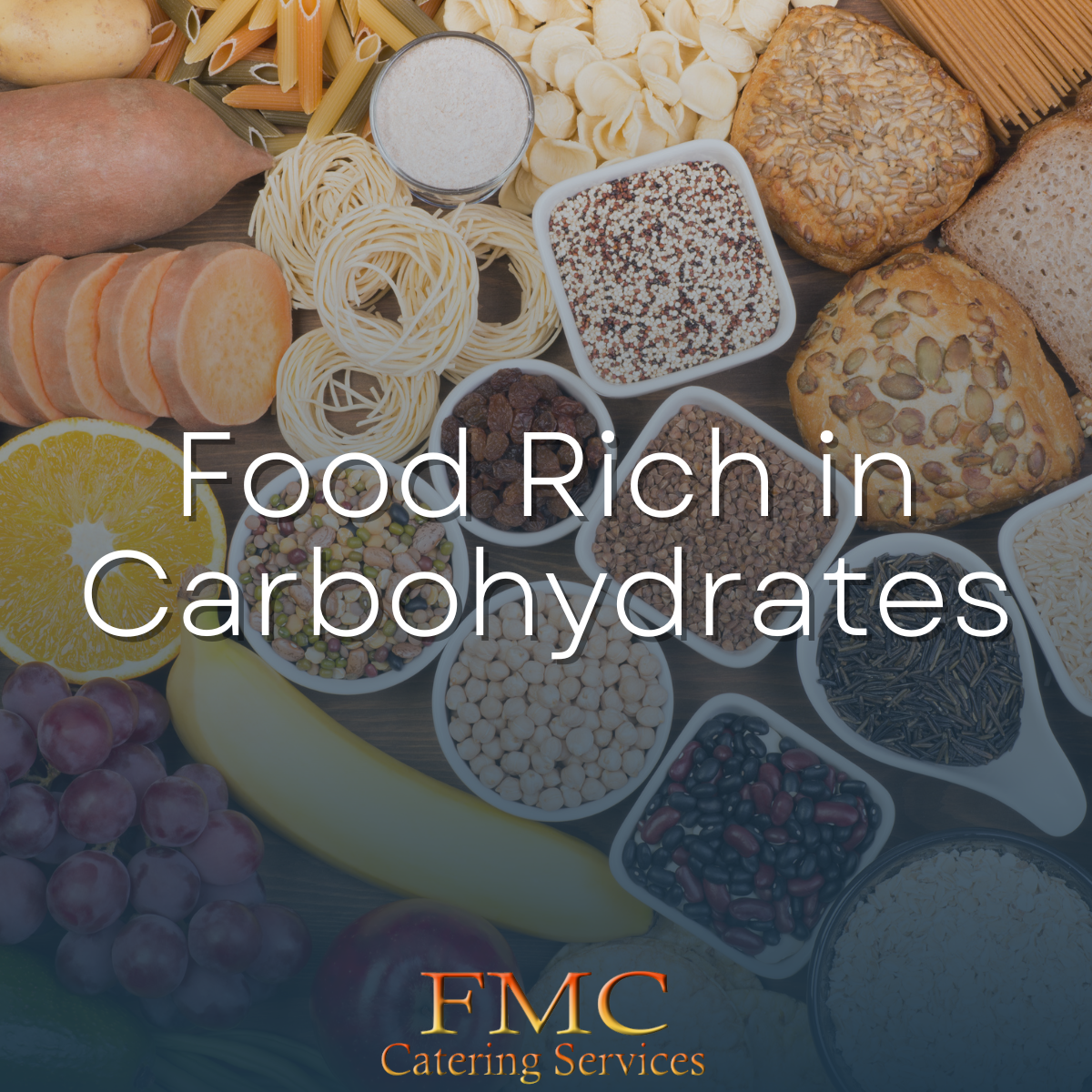The type of carbohydrate you choose to consume is crucial since some sources are healthier than others. The type of carbohydrates in the diet is more significant than their high or low quantity. For instance, nutritious grains like quinoa, rye, barley, and whole wheat bread are healthier options than French fries or highly refined white bread.
It’s important to remember that eating carbohydrates from nutritious meals is more crucial than adhering to a rigid diet that restricts or counts the grams of carbohydrates taken.

What are carbohydrates?
Sugar molecules make up carbohydrates or carbs. Carbohydrates, proteins, and fats are the three primary nutrients in foods and beverages.
Your body’s breakdown of carbs creates glucose. The primary energy source for your body’s cells, tissues, and organs is glucose, sometimes known as blood sugar. It is possible to consume glucose immediately or store it later in the muscles and liver.
What are the different types of carbohydrates?
Carbohydrates come in three primary categories:
- Sugars. Because they are in their most basic form, they are also known as simple carbs. Foods that already contain sugar, such as candy, desserts, processed foods, and ordinary soda, can also have them added. They also comprise the sugars naturally present in milk, fruits, and vegetables.
- Starches. They are complex carbohydrates made up of many linked simple sugars. To use starches as fuel, your body must first convert them into sugars. Pasta, cereal, and bread are examples of starches. They also contain some vegetables, such as corn, peas, and potatoes.
- Fiber. It is a complex carbohydrate as well. The body cannot break down most fibers, so consuming foods high in fiber can help you feel full and reduce your tendency to overeat. High-fiber diets have additional health advantages. They could aid in avoiding digestive or gastrointestinal issues, such as constipation. They might also help in lowering blood sugar and cholesterol. Fruits, vegetables, nuts, seeds, beans, whole grains, and other plant-based foods all include fiber.
Effects of limiting carbohydrates
Along with protein and lipids, carbohydrates are one of the essential nutrients that the body needs.
A diet that balances all major nutrients is typically the most healthy one that a person can consume. Low-carbohydrate diets are, nonetheless, supported by some individuals in specific situations.
- Blood sugar control: People with type 2 diabetes who limit their carbohydrate intake can better control their blood sugar levels. Before making any dietary changes, patients with type 2 diabetes should speak with their doctor to review all available treatment choices.
- Weight loss: Restricting your intake of carbohydrates may help you lose weight quickly. The rate of weight reduction slows down over time, and part of this is attributable to water loss in the beginning phases. Before beginning any restrictive dieting, people should always speak with a doctor.
- High-density lipoprotein (HDL) cholesterol levels: According to some studies, a low-carb diet can raise HDL levels. This is frequently referred to as “good” cholesterol. Research on the relationship between carbs and low-density lipoprotein, or “bad” cholesterol, is still debatable and lacks solid evidence.
The body requires carbohydrates to function correctly. Without a good nutrition plan, cutting out carbohydrates might result in nutritional imbalances.
Healthy-high carb foods
Carbohydrates have developed a negative reputation through time. They are frequently linked to type 2 diabetes, weight gain, and other health issues.
Indeed, refined grains and processed diets high in sugar frequently lack necessary vitamins and minerals. However, numerous nutrient-dense, fiber-rich meals might benefit your health.
Although some people may benefit from low-carb diets, there is no need to exclude high-carb items completely.
Here are some healthy high-carb foods you should consider adding to your diet.
Quinoa
High in nutrients, quinoa may aid in better blood sugar control and heart health. Quinoa is rich in protein and fiber, two nutrients that might help you feel fuller for longer—making it a staple for people who want to lose weight.

Oats
Oats are rich in fiber and protein, among other healthy nutrients. According to studies, oats also decrease blood sugar and cholesterol levels.
Banana
Potassium, a mineral found in abundance in bananas, is essential for controlling blood pressure. Bananas that are not quite ripe also include resistant starch and pectin, which are suitable for the digestive system.
Sweet Potato
Along with several other nutrients like vitamins, minerals, and antioxidants, sweet potatoes are a great source of vitamin A.
Beets
Vitamins, minerals, and plant-based substances abound in beets. Additionally, they are rich in inorganic nitrates, which might enhance cardiovascular health and physical performance.

Oranges
Oranges are an excellent fiber source. Additionally, they are rich in vitamin C and other beneficial plant chemicals. Orange consumption may improve heart health and boost iron absorption, which can help prevent anemia.
Blueberries
Incredibly nutritious are blueberries. They can aid in preventing oxidative damage since they are rich in vitamins, minerals, and antioxidants.
Grapefruit
Numerous healthy vitamins, minerals, and antioxidants can be found in grapefruit. There could be a lot of health advantages.
Apples
Apples are a good source of antioxidants, plant components, and vitamin C. It may help you better control your blood sugar and lower your risk of heart disease and possibly even some types of cancer.
Effects of taking too many carbohydrates
While inactive persons should limit their carbohydrate consumption to maintain a healthy weight, active people can benefit significantly from carbohydrates as an energy source. The average adult should consume 130 grams of carbohydrates daily, or between 45% and 65% of their overall caloric intake.
Low levels of physical activity, obesity, and chronic disease have all been linked to high-carb diets. The quality of carbohydrates, as opposed to their quantity, is more critical for health.
Consuming processed grains, potatoes, and added sugars can raise your chance of developing diabetes, obesity, and certain types of cancer. However, it has been demonstrated that non-starchy veggies, fruits, legumes, and whole grains are healthy.
High carb foods you should avoid
Most modern diets, such as starchy foods and sugary beverages, are incredibly high in carbs. Here are some of the high-carbohydrate foods to stay away from.
Soft pretzel
The soft pretzel is a low-nutrition source of carbohydrates despite being delectable. Eighty grams of carbohydrates are included in one medium soft pretzel. 27% of the daily recommended allowance of carbs is contained in one dish. It is best to avoid this stadium favorite, especially if you are on a low-carb diet.
Processed Cereal
The amount of carbohydrates in a bowl of sugary cereal is equivalent to that in a plate of french fries. A bowl of cereal in the morning is a sweet, unhealthy way to start the day, even though it may look innocent.
Fruit in cans
9% of the recommended intake of carbs is contained in one serving of canned peaches in syrup. Fresh fruit is a healthier alternative to this sugary snack as a source of carbohydrates.
Donuts
Although donuts are a typical breakfast, one frosted chocolate donut only has about 29 grams of carbohydrates. This indulgent delicacy lacks nutrients and is a terrible choice for breakfast.

Soda
A glass of soda contains around 26 grams of carbohydrates. That might not seem like much, but since soda is one of the most popular sources of empty calories, the number of carbohydrates and sugars in a beverage can build up rapidly. According to studies, those who drink soda are less likely to eat nutritious foods like whole grains and other carbohydrates.
Potato/corn chips
Whether you choose corn or potato chips, it’s essential to know that each has roughly 15 grams of carbs per serving. Chips are also heavy in salt and saturated fats.
Fries
A prominent fast food chain’s medium-sized order of fries contains 47 grams of carbohydrates or 16% of the daily allowance. When it comes to carbohydrates, french fries are food that may quickly build up.

Tips for adding healthy carbohydrates to your diet
Take whole grains for breakfast.
Try a cold cereal that is low in sugar and has a whole grain listed first in the ingredient list, such as steel cut or old-fashioned oats (not instant oatmeal). As a general rule, pick a cereal that includes at least 4 grams of fiber and no more than 8 grams of sugar per serving.
When eating lunch or snacks, use whole grain bread.
Uncertain about where to find whole-grain bread? Look for bread that has whole wheat, whole rye, or another whole grain listed as the first ingredient. Choose a loaf made entirely of whole grains, like 100 percent whole wheat bread.
Additionally, look past the bread aisle.
Finely milled flour is frequently used to make whole wheat bread, and bread products are often heavy in sodium. Try a whole grain salad made from quinoa or brown rice as an alternative to bread.
Instead of fruit juice, use entire fruit.
A 12-ounce glass of orange juice contains half as much sugar as an orange and twice as much fiber.
Leave the potatoes alone and serve the beans.
Instead of stuffing yourself with potatoes, which have been shown to cause weight gain, opt for beans as a great source of slowly digested carbohydrates. Legumes, chickpeas, and other beans are also good sources of protein.
Conclusion
The general idea is to choose whole meals and stay away from processed and refined carbohydrates when it comes to carbohydrates.
Whole foods high in carbs give the body a wealth of critical nutrients and health advantages.
To find out which high-carb foods are best for them, anyone with a specific health issue or concern should consult their doctor or a trained dietitian.
Source:

